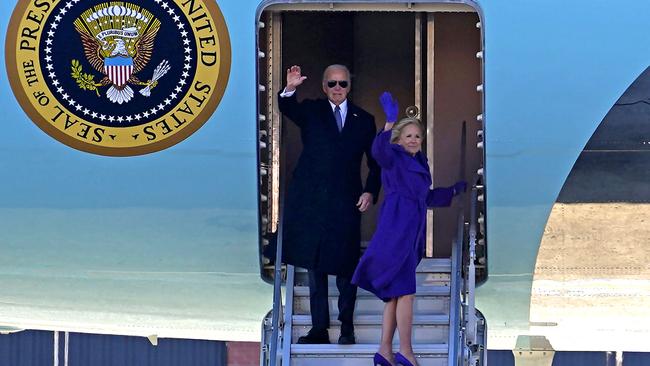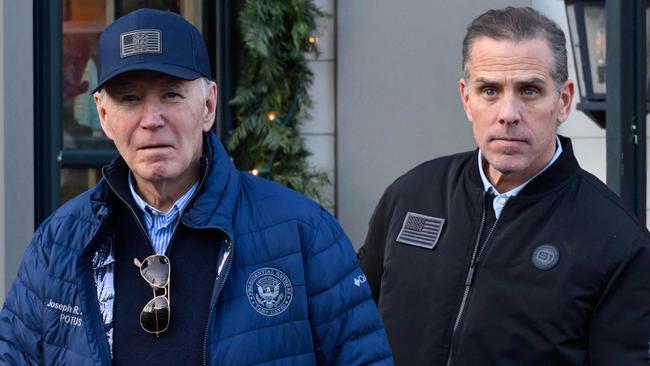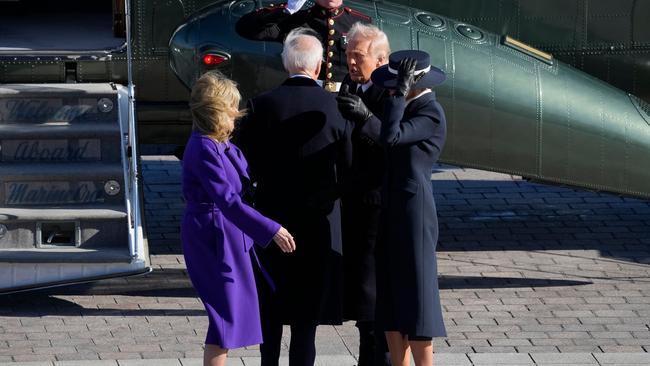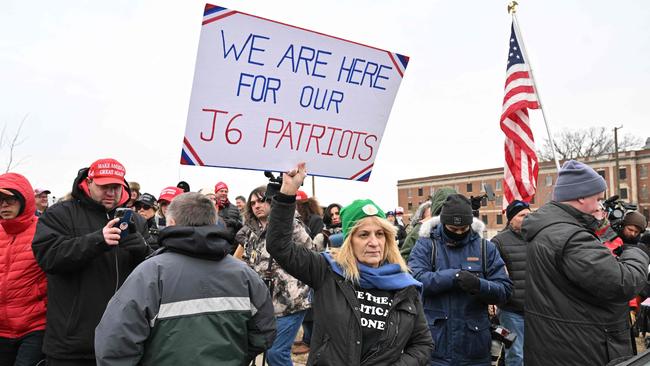History unlikely to forgive Joe Biden’s farewell pardons

From that of Hunter Biden through to the pardons issued, in his administration’s dying moments, to a broad range of family members, Biden’s exercise of the pardon power amounted to an unprecedented attack on the reputation of the federal judiciary, which, he implied, could not be counted on to dismiss politically motivated charges.
That will not only undermine Americans’ already battered confidence in their system of government; it will also legitimise Donald Trump’s own attacks on the federal administration and enforcement of justice.
To say that is not to deny that Biden’s actions fall within the scope of the power the president has, under Article II, section 2 of the American constitution, “to grant reprieves and pardons for offences against the United States, except in cases of impeachment”.
Alone among the powers the constitution enumerates, that power proceeds unfettered. As the Supreme Court held in US v Klein (1871), “To the executive alone is entrusted the power, and it is entrusted without limit’’.
The power’s breadth reflects its ancient origins. As early as 668 AD, the Anglo-Saxon monarchs had the prerogative of dispensing mercy. But it was only in the 12th century that the pardon power began acquiring its modern shape.

The impetus for that development came from the great formalisation of legal systems Pope Gregory VII initiated, with respect to Canon law, in 1075. Soon, the rulers of Europe’s emerging territorial monarchies followed suit, with Henry II more tightly defining the actions that constituted a breach of the king’s peace and appointing England’s first permanent court in 1178.
However, as the machinery of justice came into place, reaching ever deeper into daily life, the prevalence of draconian punishments and the absence of appellate mechanisms gave the royal power of mercy new prominence.
At the same time, monarchs saw the power to erase or commute sentences as a way of asserting their supremacy over the courts of common law, as well as over the manorial and ecclesiastical courts they were battling to control.
And last but not least, the pardon forged a direct relation between the monarch and the people, with clemency petitions forming the bulk of popular appeals to the Crown.
As medievalist Helen Lacey put it, “the idea that all of the king’s subjects had access to royal mercy was pervasive, and not entirely divorced from reality”.
But the prerogative’s unconstrained scope made it vulnerable to abuse, provoking incessant disputes between successive monarchs and the parliament. By 1309, the parliament was seeking to rein it in; however, precisely because the power was intended as the means by which the harsh results of formal rules could be corrected, attempts to delimit it invariably fell foul of exceptional cases that were impossible to predict.
As a result, although the Crown eventually conceded it could not be used to prevent an impeachment, the Act of Settlement in 1700 entrenched the power’s broad sweep. And it was in that form that it migrated across the Atlantic, delegated mainly to the governors of the newly established colonies.

There too, its exercise was controversial. But as Alexander Hamilton argued at the Constitutional Convention in 1787, “the criminal code of every country partakes so much of necessary severity that without an easy access to exceptions in favour of unfortunate guilt, justice would wear a countenance too sanguinary and cruel”.
Granting that power to the Senate risked unreasonable delay and could encourage corruption. It was, James Iredell told the Convention, hard to see “where (the pardoning power) could be more properly vested, than in a man who had received such strong proofs of possessing the highest confidence of the people” – that is, the president.
But the convention’s decision reflected more than Hamilton and Iredell’s advocacy. The reality is that the colonial judiciary was distrusted, if not detested. Nor was loathing of the judicial system tempered by the Revolution and its immediate aftermath.
On the contrary, those years consolidated the view – brilliantly epitomised by the aged scout Natty Bumppo, America’s first universally accepted folk symbol, in James Fenimore Cooper’s The Pioneers (1823) – that the legal system was a gigantic conspiracy of the learned against the helpless integrity of common folk. Granting the president an unconstrained prerogative of pardon was consequently the price the Convention paid for its decision to create a powerful, independent judiciary – much as the pardon power’s distant ancestor, in the time of Henry II, was the counterpart to the creation of strong, permanent courts. Nor did the safety valve it provided for an increasingly rule-bound justice system prove, despite occasional abuses, an entirely unreasonable price to pay.
However, that balance now seems more problematic. Inevitably, the debate will focus on Trump’s pardon of the January 6 rioters, including those who committed serious crimes. But for all of Trump’s objectionable rhetoric, the January 6 pardons are more closely aligned with the pardon power’s traditional function than those of the Biden administration’s final months.

In effect, few pardons were more significant in English history than the general pardon Richard II issued after the Peasants’ Revolt of 1381, which aimed at turning the page on the anger that had fuelled the descent into violence.
Indeed, Hamilton saw the ability of “the benign prerogative of pardoning” to mark such a new beginning as the pardon’s great virtue, arguing, immediately after a farmers’ rebellion had torched courthouses in Massachusetts, that “in seasons of insurrection there are critical moments when a well-timed offer of pardon to the insurgents may restore the tranquillity of the commonwealth”.
And it was with that goal of reconciliation in mind that Abraham Lincoln and Andrew Johnson issued comprehensive pardons during and after the Civil War.
There was, in other words, a higher public purpose in those pardons. In contrast, Biden’s pardon of his family is manifestly inconsistent with the Supreme Court’s dictum in Biddle v Perovich (1927) that “a pardon is not a private act of grace from an individual happening to possess power”; it must be an act oriented, rightly or wrongly, “to the public welfare”, rather than to private interests.
But the contrast should not be pushed too far. The pardons in the Peasants’ Revolt and the Civil War reached out to former enemies; Trump, like Biden, rewarded his friends, while threatening his adversaries. And as Henry de Bracton, one of the common law’s great founders, warned centuries ago, immense dangers are involved in pardoning felonious assaults “lest it furnish others the temerity to perpetrate similar deeds”.
It is, in the end, telling that the ancient Greek term for pardon, suggnome, imposes the requirement of gnome, judgment or good sense, on the spirit of forgiveness. As respect for the law frays, America needs a surer grasp of both.





No matter how history judges Joe Biden, it is unlikely to look kindly on his use of the pardon power.